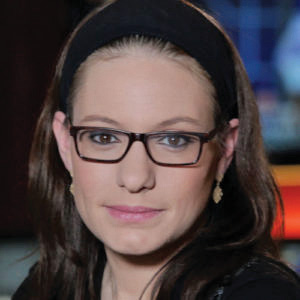
A new year begins. We are so used to this word, “new,” but the Torah asks us to stop and contemplate. To truly renew ourselves. What actually becomes “new,” in our world and in ourselves, at this time of year? In Jewish sources we find three things that the sages ask us to contemplate each day as if they were new:
Torah: One of the most popular words in the book of Deuteronomy, which we read throughout the month of Elul, is “today.” Again and again, as we read about entering the Land of Israel, we are asked to relate to past events as if they are actually happening to us this very morning, and not 3,000 years ago in the desert. “On this day the Lord your God commands you” (Deut. 26:16). Rashi comments: “Each day, let them [the commandments] be brand new as if you had just been commanded to perform them.”
Elsewhere we read: “On this day you have become the Lord your God’s own people” (Deut. 27:9), and Rashi, in the same spirit of perpetual renewal, comments: “Let every day be in your eyes as the very same day that you entered into a covenant with Him.”
Now is the most appropriate time of the year to refresh and renew our connection to the Torah, to think of the Torah as a gift that we received only today, and to determine how the new year will look when a completely new light of Torah, never seen before, glows from within it.
Land of Israel: The Land of Israel is the Promised Land, the Holy Land, but is it a new land? Indeed, we justifiably tell ourselves and the entire world that we have an ancient, historical right to this land. This is true, but we should never allow our relationship to the Land of Israel to become old or stale.
As the verse states, “And it will be when the Lord brings you to the land of the Canaanites as He swore to you and to your forefathers, and He will give it to you” (Exodus 13:11), upon which Rashi elaborates: “‘And He will give it to you,’ that is, you should consider it as if He gave it to you on that same day and not as an inheritance from your ancestors.”
It does not matter where we live. We must create a personal, living, breathing and emotional connection with the Land of Israel. We cannot rely only on what we were told by our great-great-grandparents. Again, the months of Elul and Tishrei are the perfect time to think about how to bring a new and authentic connection with the Land of Israel into our lives.
Marriage and Family: Throughout the book of Deuteronomy we received many instructions on married life and the education of our children: the questions children will ask, the answers we will give, and the manner in which we should educate them.
And it is precisely here, in the place most comfortable and familiar to us, that we are called upon to find something new.
Under the chuppah (wedding canopy) we say, “Behold, you are now holy to me, with this ring, according to the religion of Moses and Israel.” A hundred years ago, Rabbi Tzvi Kunstlicher, from Hungary, in his book “Be’er Tzvi,” asked why we emphasize “according to the religion of Moses and Israel.” He answered that our marital relationship should be the same as our relationship to the Torah given by Moses to Israel: a relationship of daily renewal. That is, “every day should be like new,” as new as the day you stood under the chuppah. Here too, we need to devote time, thought and creativity to renew our passion and to renew ourselves internally in the intimate surroundings of home.
Our sages defined the biggest challenge of our times in this way: we should not take our greatest gifts—Torah, the Land of Israel, our communities and families—for granted. The prevailing culture broadcasts a message that loyalty to a text (Torah), a land (Israel), or to fellow members of a covenant (all of our fellow Jews) are values that have vanished from the world. This culture sees newness as external to ourselves and not something to be sought or attained within.
On Rosh Hashanah we are called upon to find new meaning in those elements of our lives that have stood the test of time—in Torah, in the Land of Israel, in community and family life.
Here’s wishing for a good new year, a year of true renewal for all of us.
By Sivan Rahav Meir
Sivan Rahav Meir is an Israeli television and print journalist, author and radio and TV host. She is the World Mizrach shlicha to North America.










